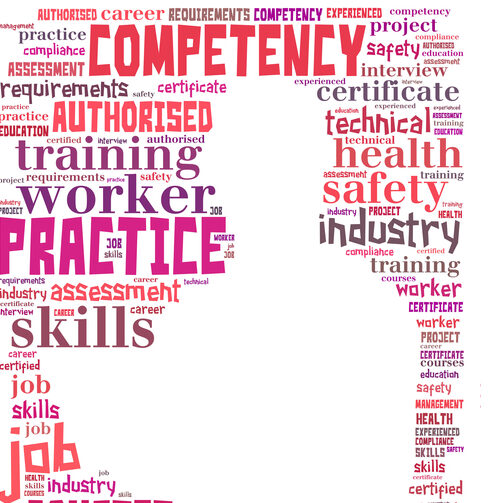What is the Hospitality Industry?
The hospitality industry is a vast and vibrant sector that encompasses a diverse range of businesses and services catering to the needs of travelers, tourists, and event-goers. At its core, the hospitality industry is dedicated to providing exceptional experiences, accommodations, and culinary delights to individuals seeking leisure, relaxation, or professional opportunities.
This dynamic industry spans a wide array of operations, including hotels, resorts, restaurants, catering services, event venues, transportation providers, and tourism-related enterprises. Each of these segments plays a crucial role in delivering seamless and memorable experiences to customers, whether they’re visiting a new destination, attending a conference, or simply indulging in a delectable meal.

The Allure of Hospitality Careers
Hospitality work offers an exciting and fulfilling career path, attracting a diverse array of individuals, from adventure-seeking students to seasoned professionals. The industry’s appeal lies in its ability to provide:
- Exposure to Diverse People and Cultures: Employees in the hospitality industry have the opportunity to interact with individuals from all over the world, immersing themselves in different cultures and languages.
- Interesting and Varied Experiences: With each day bringing new challenges and guest requests, hospitality work is rarely monotonous, offering a dynamic and engaging work environment.
- Social Environment: Hospitality jobs often involve collaboration with colleagues and the chance to build relationships with customers, fostering a vibrant social atmosphere.
- Industry Perks and Benefits: Hospitality employees may enjoy benefits such as staff meals, uniforms, transportation, and discounts on hotel stays and travel-related services.
- Excellent Career Prospects: The hospitality industry is known for its robust job growth, high employment levels, and opportunities for advancement, making it an attractive option for those seeking long-term career development.
- Flexible Scheduling: Many hospitality positions offer flexible scheduling, catering to the needs of students, families, and those seeking a work-life balance.

Key Job Titles in the Hospitality Industry
The hospitality industry encompasses a wide range of job titles, each with its own set of responsibilities and required skills. Let’s explore some of the most prominent roles:
Event Manager/Coordinator
Event managers and coordinators play a crucial role in the hospitality industry, ensuring that events, conferences, and special occasions run smoothly. Their responsibilities include coordinating venue bookings, securing audiovisual equipment, arranging catering services, and managing event logistics. Successful event managers possess strong communication, organizational, and problem-solving skills to handle unexpected challenges.

Hotel General Manager
Hotel general managers are responsible for overseeing all aspects of hotel operations, from hiring and managing staff to maintaining budgets and addressing guest concerns. They must have a deep understanding of the inner workings of a hospitality establishment, encompassing areas such as dining, fitness, and guest services. Effective general managers excel at multitasking, decision-making, and strategic planning.

Concierge
Concierges are the go-to resources for hotel guests, assisting with a wide range of requests, such as booking flights, securing theater tickets, organizing transportation, and suggesting local attractions. Concierges in luxury hotels must have extensive industry experience, a vast knowledge of the local area, and exceptional interpersonal skills to provide personalized and attentive service.

Server
Servers are the frontline employees in hotels, restaurants, and other hospitality venues, handling customer orders, serving food and beverages, and processing payments. Successful servers must possess strong customer service abilities, attention to detail, and the physical stamina to navigate the fast-paced environment of the hospitality industry.

Head of Food and Beverage
The head of food and beverage oversees all aspects of the culinary and beverage operations within a hospitality establishment. Their responsibilities include maintaining quality control, managing inventory, establishing service standards, and coordinating with other departments. Effective food and beverage leaders excel at budgeting, staff management, and ensuring the highest levels of guest satisfaction.

Required Skills and Competencies
Regardless of the specific job title, certain core skills and competencies are essential for success in the hospitality industry. These include:
- Excellent Communication and Interpersonal Skills: Hospitality professionals must be adept at conveying information clearly, listening attentively, and building rapport with customers and colleagues.
- Strong Customer Service Orientation: A deep understanding of customer needs, a commitment to exceeding expectations, and a genuine desire to provide exceptional experiences are fundamental to any hospitality role.
- Flexibility, Problem-solving, and Multitasking: The ability to adapt to changing circumstances, think critically, and juggle multiple tasks simultaneously are invaluable in the fast-paced hospitality environment.
- Cultural Awareness and Language Skills: Hospitality workers often interact with individuals from diverse cultural backgrounds, making cultural sensitivity and language proficiency highly desirable assets.
- Teamwork and Collaboration: Effective collaboration, coordination, and support among colleagues are essential for delivering seamless hospitality services.

Ethical Considerations in the Hospitality Industry
The hospitality industry places a strong emphasis on ethical conduct, as the trust and satisfaction of customers are paramount. Key ethical considerations in the hospitality industry include:
- Commitment to Excellence: Providing the highest quality of service, accommodations, and culinary offerings to ensure guest satisfaction.
- Concern and Respect for Others: Treating customers, colleagues, and the local community with dignity, empathy, and care.
- Trustworthiness and Honesty: Maintaining the confidentiality of guest information and upholding transparency in all business practices.
- Accountability and Leadership: Taking responsibility for one’s actions and decisions, and setting a positive example for the team.
- Fairness and Discretion: Ensuring that all employees and customers are treated equitably and that sensitive information is handled with the utmost care.

Conclusion
The hospitality industry is a dynamic and multifaceted sector that offers a diverse range of career opportunities, from event planning and hotel management to food and beverage operations. By understanding the key job titles, required skill sets, and ethical considerations, individuals can explore the vast potential of the hospitality industry and embark on rewarding and fulfilling careers.
Whether you’re drawn to the excitement of event coordination, the challenge of hotel operations, or the artistry of culinary management, the hospitality industry provides a wealth of avenues for personal and professional growth. With its emphasis on exceptional service, cultural diversity, and work-life balance, the hospitality industry presents an enticing prospect for those seeking a dynamic and rewarding career path.


